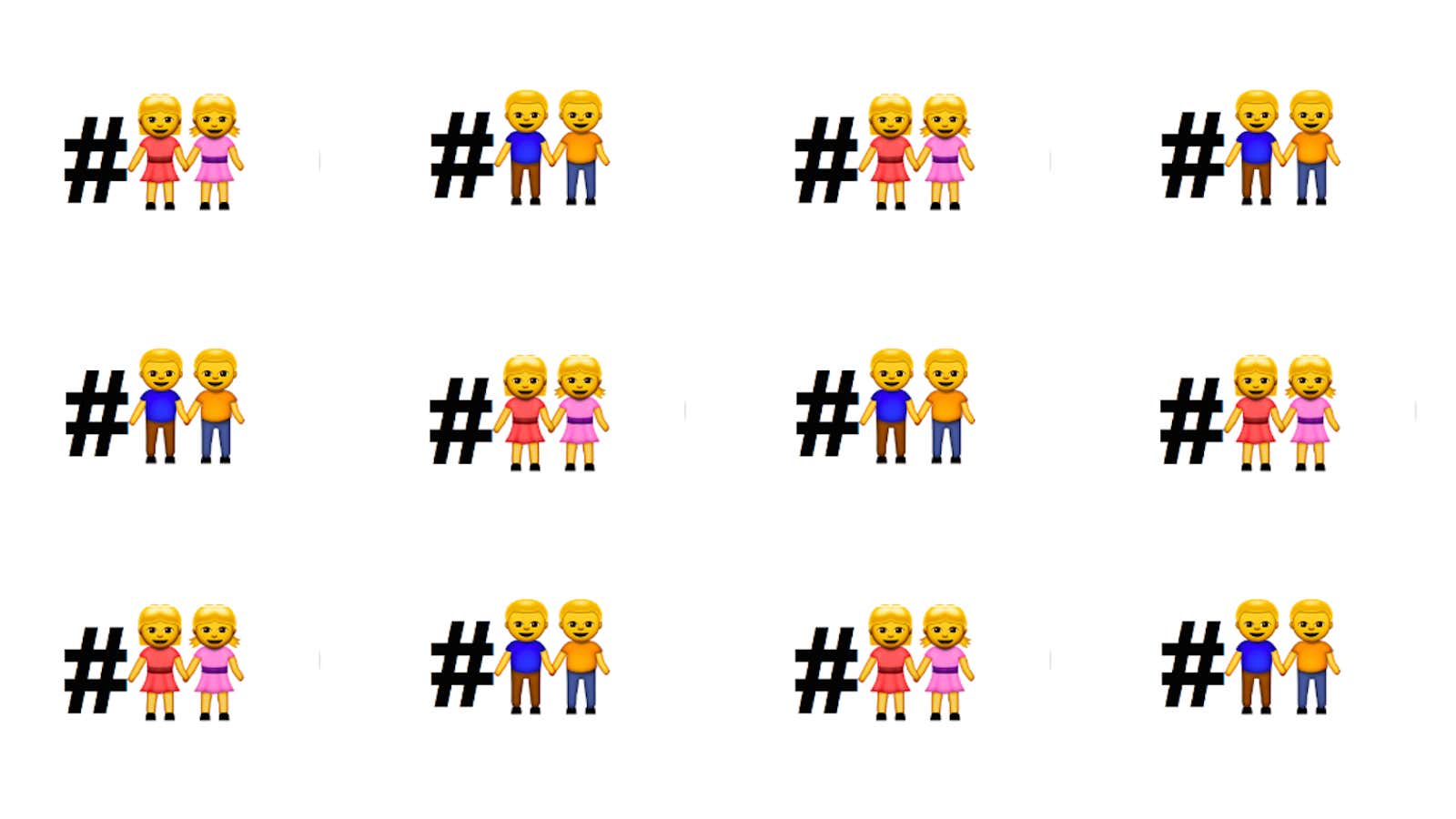It may have been a coincidence, but the timing was prime.
On April 27, Instagram enabled hashtag emojis as part of an app update. On its first day, the ghost emoji had around 2,000 posts tagged, while the ever-popular praying hands emoji had around 5,000. But the emoji of two women holding hands (widely presumed to represent a same-sex couple) garnered more than 13,000 posts, as people around social media discussed same-sex marriage legalization.
The next day, April 28, the US Supreme Court heard oral arguments on a set of cases that would determine whether states can accept or ban same-sex marriages performed in other states. The court is generally believed to be divided along partisan lines, with Justice Anthony Kennedy—considered the deciding vote in the case—leaning tentatively toward same-sex legalization.
The court is expected to deliver its ruling in June. If it comes down on the side of legalization, the decision would effectively legalize same-sex marriage in all 50 US states.
Outside of the courthouse, emojis have increasingly become part of the online organizing and advocacy efforts of the US marriage equality movement. Rather than #LegalizeGay, or #samesexmarriage, or any of the infinite other variations of hashtags made possible by the English language, however, you can now also choose from among 12 emojis: two same-sex couples (one male and one female couple), and five families with same-sex parents.
Emojis have been criticized in the past for not representing a wide enough array of identities—same-sex emojis only became available this month on Apple’s iOS. Newly released multiracial options, meanwhile, have come under fire from critics who accuse developers of simply creating darker-skinned versions of white emojis. But with the introduction of same-sex couples, at least there is a family and relationship model that more closely resembles real life for many LGBT Americans.
Gabe Madway, a representative from Instagram, told Quartz that the timing of the update was purely coincidental. “We launched emoji hashtags to allow people to communicate feelings and emotions in a universal way that anyone can understand,” he explained.
But that’s what makes them politically useful. Emojis unite users with similar ideological stances or messages more easily than words, crossing language divides and requiring far less information to understand. While the desire to connect makes ordinary hashtags useful, the simplicity of images may prove emoji hashtags far more powerful.
